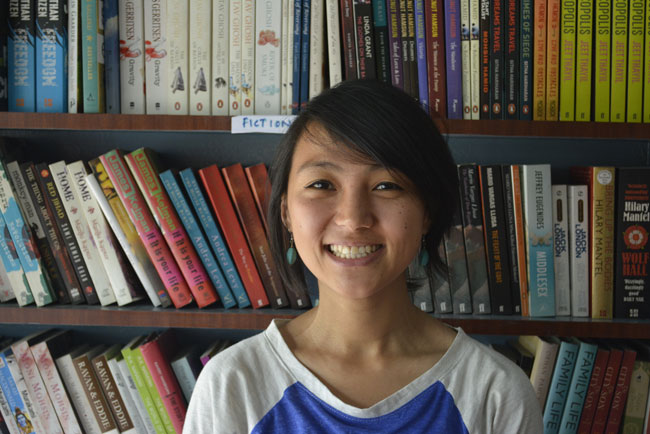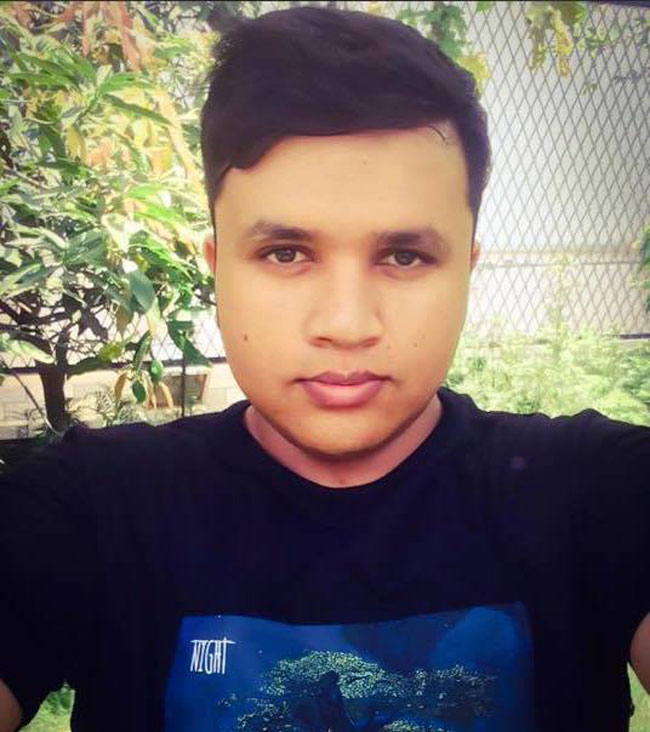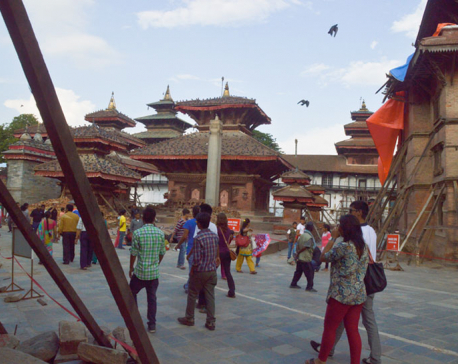
OR
They say a poet is, before anything else, a person who is passionately in love with language. And with time as well as various programs, this is a passion that is spreading through our country like wildfire. The Word Warriors have indeed become very successful in appealing to the youngsters and encouraging them to play around with poetry. In fact, at the moment, they are gearing up for the first ever national level poetry slam. Those living in Kathmandu, Lalitpur and Bhaktapur districts, between the ages of 14 – 25 and interested in slam poetry can apply for the Kathmandu Regional Slam before June 25. The regional slam is scheduled for July 2. In that light, The Week had a few slam poets talk about their experiences with poetry.
Anudeep Dewan
Reading novels and poetry for me are two very different things. I can go through stories in one take but poems take a longer time to sink in. It seems you have to go to a certain depth to understand them and I enjoy that complexity. Poems compel you to invest your time and put in that extra effort.
Where writing poetry is concerned, for me personally, the process is a little less calculated. I don’t consciously focus on one factor or the other. Often I will be reading about one thing or the other for a long time and all the ideas that have been accumulated from the experience sort of spill on the page. Then comes the important bit: Editing. I usually go through several drafts of a poem.

I think the content of the poems can’t be overlooked either. In fact, in my opinion, it can dictate whether the work is a good or a bad one. For instance, there have been debates on our forums over homophobic or sexists remarks. I think this is rather careless. If we are sharing our poems on a public platform, we must feel a sense of responsibility. Other than that, I believe the flourishing spoken word scene in our country is doing a great job breaking barriers. The idea that writing poems is an elitist art form is indeed a huge misconception.
Samip Dhungel
My favorite thing about poetry is that it can transcend profession, age, background or any other kind of barrier that might be there. It is for anybody and everybody to enjoy and yet, it is such a powerful art form. Especially when you are performing poetry, I really enjoy people’s responses. It’s amazing to see others connect or relate with your ideas, opinions and react accordingly. They also help me gauge if my writing and work are on the right track.

I believe getting inspiration isn’t a problem. This initial stage of finding a poem in yourself isn’t difficult. But once you have figured out what the poem will feature, the process of completing it and then finally being happy with it can be a long one. In my experience, this takes a lot of time. I scribble four or eight lines of verses almost every other day but proper, long ones takes time.
Where language is concerned, my preference is definitely Nepali. I’m comfortable writing poetry in English as well but I feel you can savor the sentiments better in your native language. We are more familiar with its nuances and references. It is also makes it easier to take the craft outside of our capital. When we began our workshops around Nepal two years ago, we spent most of our energy introducing the students to the art form of spoken word. But now people especially in Chitwan and Pokhara are reaching out to us with their ideas on the matter. We are spreading it through places like Illam and Gorkha as well. It’s nice to see the excitement around poetry slowly growing in this manner.
Nasala Chitrakar
I started spoken word believing I’d never be good at it. This is actually a very common complex that many people share. We see it a lot among students in our workshops as well. I think it has a lot to do with this rigid idea that most of us have about poetry. We believe it should sound and be a certain way. That was the case with me too. But spoken word has helped me gain a new perspective.
Poetry is an amazing medium to express yourself. You don’t need any specialized skills to pursue it. There are things you can’t always bluntly say out loud and in those instances, this has proven to be an important outlet for some of us. We have many people struggling with various issues at home, work or with themselves. It’s such a relief to have metaphors, similes and such in poetry to channel all that energy.

Also to hear somebody perform and voice their verses takes the work to a whole new level. I have terrible stage fright as well. I forget every now and then but again, these mistakes aren’t that significant. We try very hard to make students understand this. The whole point of spoken word poetry is to give an outlet to all the jumbled up thoughts in your head.
Pramod KC
Rather than natural talent, I believe you need a strong will to write poetry. I say so because in most cases, even when you are full of opinions and ideas, it can be tricky to find a way to convey them in a satisfying manner. To this day, every now and then, I struggle with expressing myself. So in my experience, one must have the stamina and patience to repeatedly work and rework on every line from various angles and perspectives. You just have to keep writing over and over and over again. There is no such thing as too many rough drafts. Only then, eventually you will come up with a verse that truly reflects your feelings.

Along with one’s will power, it’s only important to provide all poetry enthusiasts with the right tools and trainings. There are some technical aspects to writing and performing poetry and if you have learnt them, it’s always easier to move ahead. In this regard, I believe we have a wonderfully active scene. There are so many workshops, classes and events happenings in our poetry circle. Plus we have some really good poets too which only inspires me to want to put more effort into my own work.
Everybody has their own style and I believe it is best to stick with that and cultivate it. There is no point in letting other things dictate the way you write. For instance, I write in Nepali because the verses in my head have always naturally come in Nepali. I could write in English as well but I feel that would like forcing something. So I don’t do it.
You May Like This

Glimpses of everyday life
No noise, no chaos,no pollution; just the Bagmati river, shimmering in the moonlight And in the stifled light... Read More...

Everyday life hacks
Lemons and limes will stay fresh longer than you ever thought possible if you store them in a bowl of... Read More...

900 sweepers clean Kathmandu everyday but dust remains unsettled
KATHMANDU,June 27: The Kathmandu Metropolitan City (KMC) Office has been deploying over 900 sweepers to clean the streets of Kathmandu... Read More...







Just In
- NRB to provide collateral-free loans to foreign employment seekers
- NEB to publish Grade 12 results next week
- Body handover begins; Relatives remain dissatisfied with insurance, compensation amount
- NC defers its plan to join Koshi govt
- NRB to review microfinance loan interest rate
- 134 dead in floods and landslides since onset of monsoon this year
- Mahakali Irrigation Project sees only 22 percent physical progress in 18 years
- Singapore now holds world's most powerful passport; Nepal stays at 98th











Leave A Comment